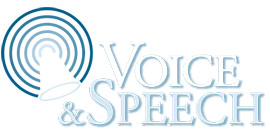Transcript
Over the years, I’ve noticed a pattern to the majority of questions people ask about public speaking and presentation. The questions usually suggest they’re looking for simple solutions to complicated issues.
That’s understandable, but also a problem. Communication is complex. After all, it’s about human interaction. And we all have enough experience to know that anything related to humans takes complication to a whole new level!
But humans also prefer certainty and simplicity. We don’t like things to be complex and iffy. When it comes to public speaking, we look for tips and tricks that are guaranteed to work in every situation. We constantly come up with rules to guide us through the communication chaos.
But we soon realize the rules don’t cover every possibility. So we make more. Before long, the rules just add to the complexity. Sound familiar? There’s a term for this. It’s called “formulism.”
Formulism is a strict adherence to prescribed rules or methods. It shows up in math, religion, art and, yes, even in public speaking training. The trouble is, prescription creates rigidity. We get up tight trying to remember and obey all the rules. We become disconnected, focused on doing it right, rather than being present to what’s actually happening. In this respect, formulism stifles peak performance rather than promoting it.
Robert McKee, a well-known screenwriting instructor, observes.
A rule says, “You must do it this way.” A principle says, “This works, and has through all remembered time.” The difference is crucial. Anxious, inexperienced writers obey rules. Rebellious, unschooled writers break rules. Artists master the form.
You could say the same thing for speakers and presenters.
The effective alternative to formulism involves mastering principles, and that leads to Freedom. For example, instead of making up rules for eye contact we can cultivate our ability to be present and connected to our listeners. Then eye contact takes care of itself. Instead of making up rules for pausing we can learn how to relax and breathe; then pausing happens automatically.
Bringing crucial skills to the interaction, trusting we have what it takes and allowing ourselves to be aware and present, we can then apply those skills in unique ways that are highly relevant to any given situation. That’s true expertise.
When we commit to the way of freedom, in communication, we discover a sense of confidence and serenity. We’re not trying to be perfect, but effective. We become present for our listeners. We bring enhanced creativity and spontaneity to the situation. And we communicate with greater relevance and ultimately more impact.
To learn more about the skills I think promote freedom in communication, click the link in the description box and enroll in the free video mini course, The Sound of Success.
Public Speaking: Freedom versus Formulas
Try to learn something about public speaking and you soon discover more rules, dos and don’ts then you can shake a stick at. Pretty soon you can’t keep track of all the rules. When you learn to master principles rather than obeying rules you become relaxed and flexible with public speaking. You’re able to adapt, be relevant and make an impact in any situation.


